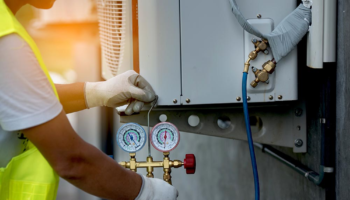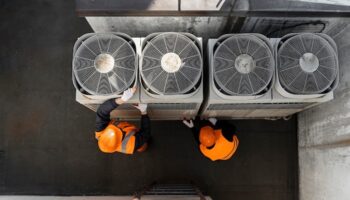Climate change is a global phenomenon that has caused drastic changes in our environment. Rising temperatures, extreme weather events, and changing rainfall patterns are some of the impacts of climate change that we have already experienced. These changes have affected various aspects of our lives, including the way we use energy to heat, cool, and ventilate our buildings.
One area that has been significantly impacted by climate change is the HVAC (Heating, Ventilation, and Air Conditioning) industry. Moreover, HVAC in Eagan is essential for maintaining comfortable and healthy indoor environments in residential, commercial, and industrial buildings. However, with the changing climate, these systems are facing significant challenges.
Rising Temperatures
One of the most apparent impacts of climate change is rising temperatures. As a result, people are increasingly relying on air conditioning to keep their buildings cool. This has led to a surge in demand for HVAC systems, putting additional strain on the already overburdened power grids.
Moreover, rising temperatures also mean that HVAC systems have to work harder and longer to maintain comfortable indoor temperatures. This results in increased energy consumption and higher electricity bills for building owners and residents.
Extreme Weather Events
Extreme weather events, such as heatwaves and polar vortexes, are becoming more frequent and severe due to climate change. These weather events can cause power outages that disrupt HVAC systems, leaving buildings without heating or cooling.
Furthermore, extreme weather conditions also affect the efficiency of HVAC systems. For instance, high humidity levels during heatwaves reduce the effectiveness of air conditioning units, while extreme cold temperatures can cause boilers to malfunction.
Changing Rainfall Patterns
Climate change has also resulted in changing rainfall patterns, with some areas experiencing more frequent and severe droughts. This has a direct impact on HVAC systems that rely on water for cooling purposes.
In regions where water scarcity is an issue, HVAC systems that use evaporative cooling methods may become less efficient or even unusable. This can create challenges for buildings that heavily rely on these systems, such as data centers and industrial facilities.
Conclusion
It is evident that climate change has a significant impact on HVAC systems. The increasing demand for energy to power these systems, along with extreme weather events and changing rainfall patterns, poses challenges for the industry. As a result, there is a growing need for more sustainable and energy-efficient HVAC solutions. This includes the use of renewable energy sources to power these systems, as well as implementing efficient building design practices that reduce the need for excessive heating and cooling.





